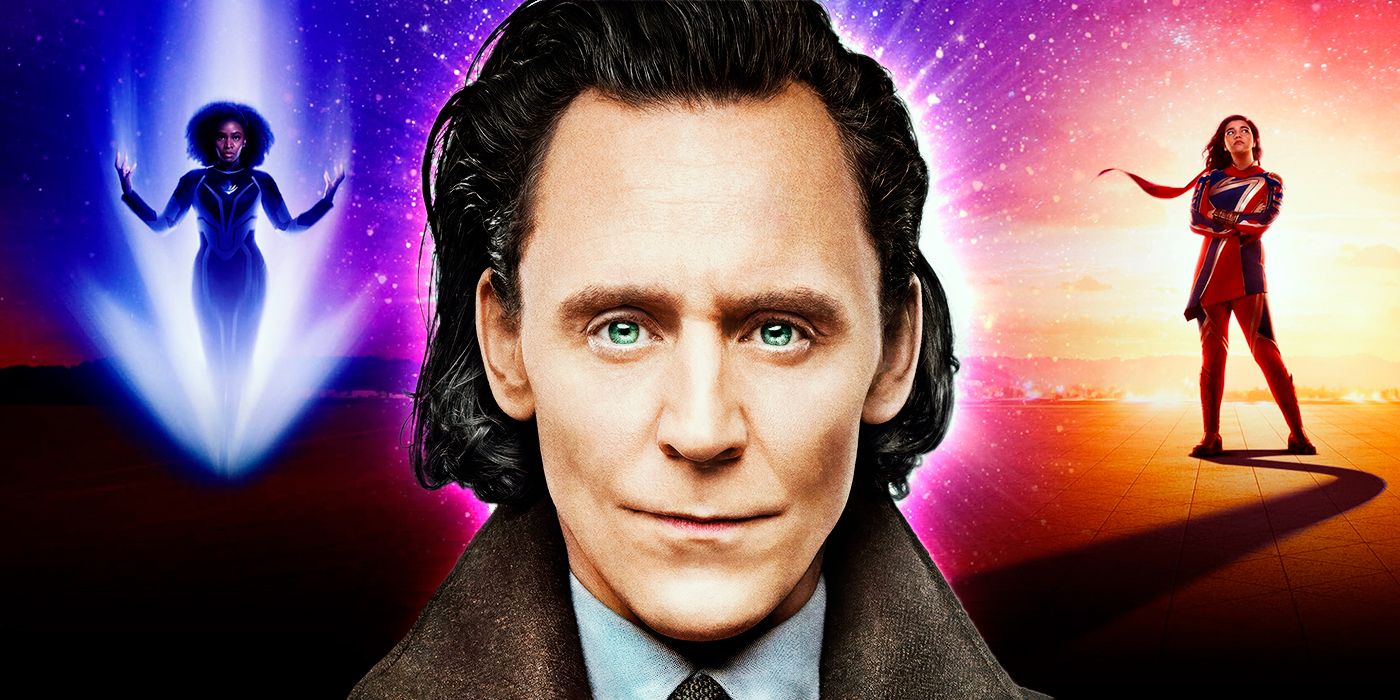It was a big week for the Marvel Cinematic Universe, with Loki Season 2 coming to a glorious end, and The Marvels taking flight on the big screen. The two stories almost couldn’t be more different from aesthetics to plot, but they do share something important in common. As Marvel Studios tries to map out the future of the MCU, both Loki and The Marvels have something to teach future filmmakers about good comic book storytelling. Forget trying to make the fantastical science fiction concepts in the plot “make sense,” instead focusing on how these events affect the characters.Loki Season 2 centered on a massive sci-fi gizmo at the center of the Time Variance Authority breaking under the weight of the newly (re-)created multiverse. Meanwhile, The Marvels deals with sci-fi artifacts being used to corrupt a sci-fi transit system to harm one planet while saving another. Both Loki and The Marvels spare little time explaining how these things happen, instead choosing to focus on why it’s happening. At the center of each story is a very high-concept science fiction idea. Interrogating these concepts, even from a fictional science perspective, feels like a fool’s errand. It is important the audience can generally follow the story, especially why a failing Temporal Loom or corrupted Jump Point network is bad. Yet, it’s not so important the stories need to be weighed down by technobabble and phony scientific fixes. Instead, each story prioritizes the characters’ feelings, allowing their reactions to the problems to engage the audience.Director Nia DaCosta wanted The Marvels runtime to be under two hours, which helped the movie avoid being bogged down by lengthy explanations of jump points and how they work. Loki had more time to play with that, but not all that much. This meant fan-favorite new character Ouroboros spent some time talking about temporal auras and the spaghettification effect in black holes. Individual viewers’ mileage may vary, but both stories gave audiences just enough to understand the sci-fi concept without having to learn too many new vocabulary words.REVIEW: MCU: The Reign of Marvel Studios Documents Cinema’s Biggest Franchise
It was a big week for the Marvel Cinematic Universe, with Loki Season 2 coming to a glorious end, and The Marvels taking flight on the big screen. The two stories almost couldn’t be more different from aesthetics to plot, but they do share something important in common. As Marvel Studios tries to map out the future of the MCU, both Loki and The Marvels have something to teach future filmmakers about good comic book storytelling. Forget trying to make the fantastical science fiction concepts in the plot “make sense,” instead focusing on how these events affect the characters.
Loki Season 2 centered on a massive sci-fi gizmo at the center of the Time Variance Authority breaking under the weight of the newly (re-)created multiverse. Meanwhile, The Marvels deals with sci-fi artifacts being used to corrupt a sci-fi transit system to harm one planet while saving another. Both Loki and The Marvels spare little time explaining how these things happen, instead choosing to focus on why it’s happening. At the center of each story is a very high-concept science fiction idea. Interrogating these concepts, even from a fictional science perspective, feels like a fool’s errand. It is important the audience can generally follow the story, especially why a failing Temporal Loom or corrupted Jump Point network is bad. Yet, it’s not so important the stories need to be weighed down by technobabble and phony scientific fixes. Instead, each story prioritizes the characters’ feelings, allowing their reactions to the problems to engage the audience.
Director Nia DaCosta wanted The Marvels runtime to be under two hours, which helped the movie avoid being bogged down by lengthy explanations of jump points and how they work. Loki had more time to play with that, but not all that much. This meant fan-favorite new character Ouroboros spent some time talking about temporal auras and the spaghettification effect in black holes. Individual viewers’ mileage may vary, but both stories gave audiences just enough to understand the sci-fi concept without having to learn too many new vocabulary words.
#MCU #Learn #Marvels #Loki #Season
Note:- (Not all news on the site expresses the point of view of the site, but we transmit this news automatically and translate it through programmatic technology on the site and not from a human editor. The content is auto-generated from a syndicated feed.))



